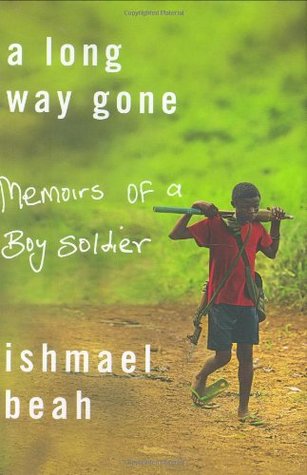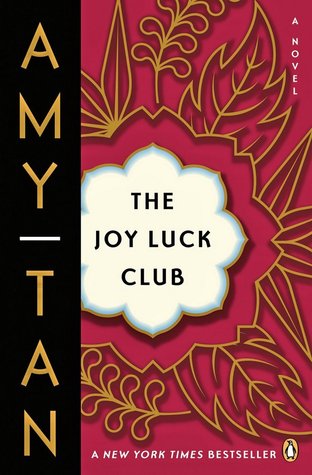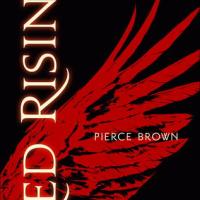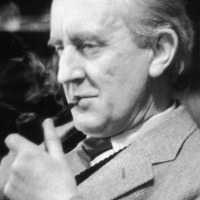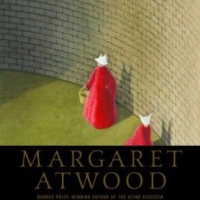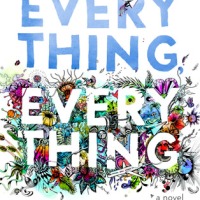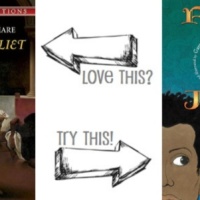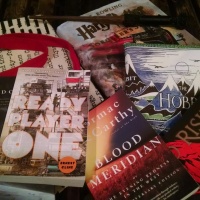Does a book need to be sad in order to be moving? Must the reader suffer alongside the writers/characters in order to learn from them? I’ve been asking myself these questions since finishing two of the texts that have been taught in my school’s 9th grade ELA classes in past years. Both texts were nonfiction (we have our fiction texts locked down) and apparently have been popular in previous years so, despite the depressing blurbs, I was optimistic about reading both.
I’m now sitting with both texts, A Long Way Gone by Ishmael Beah and Hole in My Life by Jack Gantos, under my belt, but I’m having trouble picturing myself reading either text with a class of students. I’m well aware that they both have value; let me make that perfectly clear. However, nowadays, I’m reading things with a mind to how I would teach that text and what meanings students might be able to extract, and I’m not confident I got anything out of them other than all-consuming sadness. That takes me back to my original questions: does a book need to be sad in order to be moving and must the reader suffer alongside the writers/characters in order to learn from them? Additionally, considering the lesson we expect young readers to extract from this exceedingly sad text, is it possible to learn the same lesson from a more positive and uplifting text?
Spare me the lectures, please. I fully understand that just because something is sad doesn’t mean that we shouldn’t read it. We all know that my patronage of WWII and Holocaust books and documentaries likely has me on a CIA watch list. I continue to seek out these stories in spite of the fact that I know they will have a sad ending because they are still saturated with meaning and lessons on tolerance, injustice, kindness, forgiveness, and so on and so forth. Similarly, I can see that both of these nonfiction texts address juvenile justice in controversial and meaningful ways, ways that might appeal to the readers that will be in my classroom. In these texts, they may find solace, familiarity, wisdom of experience, and guidance, all of which would make these texts more than valid reads for these students. So I’m on board! No, I didn’t enjoy either of them very much, but maybe that’s because I’m not the target audience. No, I couldn’t relate, but that is an incomprehensible blessing that only reflects my privileged life. Now that I’ve ruminated, my original, rhetorical questions seem to have morphed into the more concrete question of why can’t we just read something happy?!? If we read both of these books plus To Kill A Mockingbird and Romeo and Juliet, these kids might just wonder whether happy books actually exist! Color me selfish, but I want to read something happy!!
Anyway, let’s talk about the texts:
This is how wars are fought now: by children, hopped-up on drugs and wielding AK-47s. Children have become soldiers of choice. In the more than fifty conflicts going on worldwide, it is estimated that there are some 300,000 child soldiers. Ishmael Beah used to be one of them.
What is war like through the eyes of a child soldier? How does one become a killer? How does one stop? Child soldiers have been profiled by journalists, and novelists have struggled to imagine their lives. But until now, there has not been a first-person account from someone who came through this hell and survived.
In A Long Way Gone, Beah, now twenty-five years old, tells a riveting story: how at the age of twelve, he fled attacking rebels and wandered a land rendered unrecognizable by violence. By thirteen, he’d been picked up by the government army, and Beah, at heart a gentle boy, found that he was capable of truly terrible acts.
In the summer of 1971, Jack Gantos was an aspiring writer looking for adventure, cash for college tuition, and a way out of a dead-end job. For ten thousand dollars, he recklessly agreed to help sail a sixty-foot yacht loaded with a ton of hashish from the Virgin Islands to New York City, where he and his partners sold the drug until federal agents caught up with them. For his part in the conspiracy, Gantos was sentenced to serve up to six years in prison.
In Hole in My Life, this prizewinning author of over thirty books for young people confronts the period of struggle and confinement that marked the end of his own youth. On the surface, the narrative tumbles from one crazed moment to the next as Gantos pieces together the story of his restless final year of high school, his short-lived career as a criminal, and his time in prison. But running just beneath the action is the story of how Gantos – once he was locked up in a small, yellow-walled cell – moved from wanting to be a writer to writing, and how dedicating himself more fully to the thing he most wanted to do helped him endure and ultimately overcome the worst experience of his life.This one was difficult for the most obvious reason: the subject of child soldiers and war is horrific. It was extremely thoughtful and well-written, clearly being the result of a short life full of experience.
A Long Way Gone was the better of the two. It was painfully sad and also distant in a way that meant that I, as a white American woman, couldn’t really understand or even imagine the writer’s experiences. Nonetheless, it was extremely thoughtful and well-written, showing that it was the result of a short lifetime of horrid and impactful experiences.
Hole in My Life was unpleasant, not because of the subject matter, but because of the writing. I couldn’t stand the narrator, and I’m not talking about the 19-year-old Gantos. I mean the post-prison, writing-about-my-experiences Gantos, who narrated his choices and actions in ways that seemed to romanticize a lifetime of arrogant and ignorant actions and choices. I was reminded of Christopher McCandless from Krakauer’s Into the Wild, whose ignorance of his privilege and reckless desire for adventure directly led to his death. Gantos kindly admits that it was his own stupidity that landed him in prison, but his honesty didn’t negate his unlikability, for me at least. I have no desire to teach this one, but we’ll see.
Thoughts? Suggestions? Am I the only one feeling overwhelmed by sad books lately?

